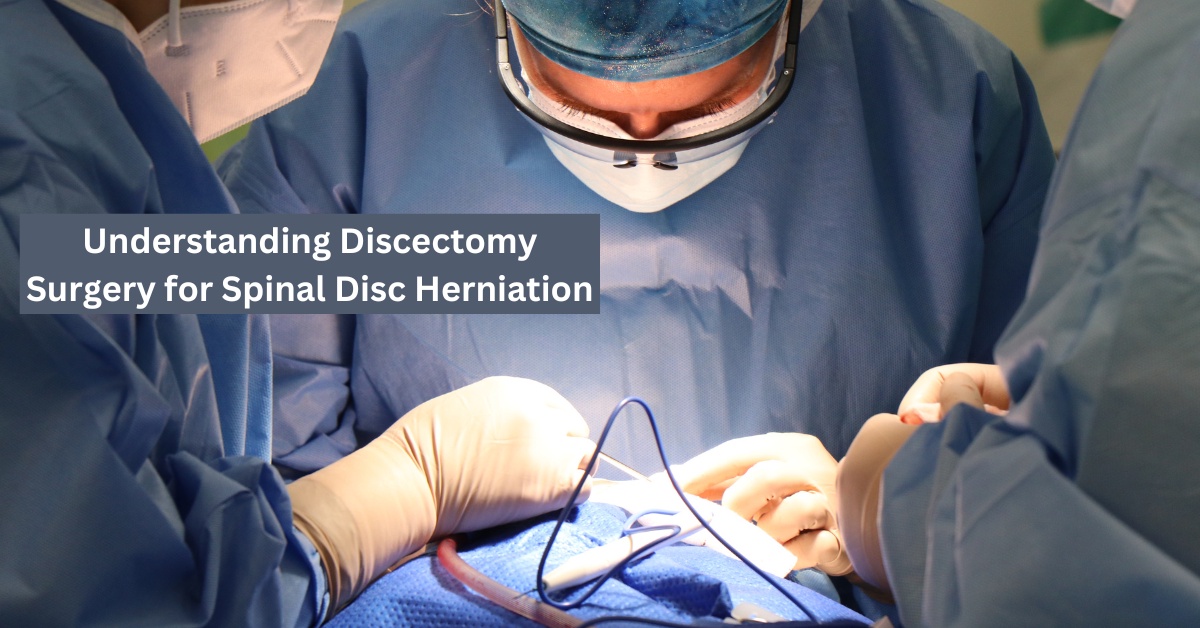If you're suffering from spinal disc herniation, then you understand the agony that comes with it. The pain is often unbearable, and it can make performing everyday tasks a nightmare. Discectomy surgery is one of the most common surgical procedures used to treat this condition. However, like any other medical procedure, it has its pros and cons. Understanding what you stand to gain and the risks involved is essential in making an informed decision. This blog post delves into the pros and cons of discectomy surgery, helping you understand what to expect. We'll explore the benefits of discectomy surgery, its potential side effects, and the recovery process. So, if you're considering undergoing discectomy surgery, read on to gain insight into this procedure.
Overview of Discectomy Surgery for Spinal Disc Herniation
Discectomy surgery is a common and effective treatment for herniated or degenerative discs in the spine. This minimally invasive procedure involves the removal of the damaged portion of the disc, which relieves pressure on the surrounding nerves. Patients with severe back or leg pain, numbness, and tingling caused by these conditions can benefit greatly from this procedure. The recovery time for discectomy surgery is generally short, and patients can return to their daily activities with a reduction in symptoms. Overall, discectomy surgery can be an effective solution for those experiencing debilitating pain due to herniated or degenerative discs.
Meanwhile, discectomy surgery remains a common and effective option for those suffering from herniated discs. With technological advancements in recent years, the success rate of the surgery has improved, and patients have reported significant pain relief within days after the procedure. Ultimately, those considering discectomy surgery should consult with their healthcare provider to determine if it is the best course of action for their individual situation.
Advantages of Discectomy Surgery
When it comes to treating herniated discs, discectomy surgery is one of the most effective methods available. This surgical procedure involves the removal of the nucleus pulposus, which is the soft center of the disc that is putting pressure on a nerve and causing pain. The procedure is done through a small incision in the back and can be performed as an outpatient procedure in some cases. Discectomy surgery has a high success rate in alleviating pain and restoring mobility, with many patients reporting significant improvements in their quality of life after the procedure. Overall, discectomy surgery is an effective option for those suffering from herniated discs, and can provide much-needed relief from chronic pain.
Discectomy surgery is one of the spine surgery types commonly performed to remove a herniated or degenerative disc from the spine. While this procedure can offer relief from back pain and other symptoms, Re-herniation of the disc can occur if the disc material is not completely removed during surgery. It is essential to have an open conversation with your doctor and ensure that you fully understand the risks and benefits associated with discectomy surgery to make an informed decision.
Next, it is important to note that discectomy surgery is just one type of spine surgery available for the treatment of various spinal conditions. Other spine surgery types include laminectomy, spinal fusion, and vertebroplasty, and each has its own set of benefits and risks. Therefore, patients are encouraged to discuss all available treatment options with their healthcare provider before deciding on the best course of action. Moreover, as discectomy surgery is a major procedure that carries potential risks and complications, it should only be considered after all other less invasive approaches have been attempted. Taking the time to explore alternative treatments options first can help ensure that patients receive the most appropriate care for their individual needs.
To Conclude
In conclusion, discectomy surgery can be an effective treatment option for spinal disc herniation. It can alleviate symptoms, improve quality of life, and restore mobility. However, it also comes with potential risks and complications. It's important to weigh the pros and cons of this procedure and discuss your concerns with your doctor to make an informed decision that aligns with your specific needs. It remains a viable option for those who struggle with chronic back pain and loss of function. By understanding what to expect during and after surgery, you can prepare yourself for a successful recovery and improved overall health.


No comments yet